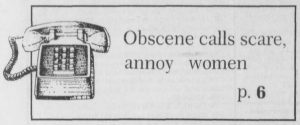by Cory Schutter
It’s difficult to wrap my head around Richmond’s provenance. I don’t want to repeat what has already been said. So many individuals have put pen to paper or voice to air and expressed the history of Richmond. They’ve challenged what we know, forever altering the way we have driven down streets and tried to manufacture a city of meaning.
This city comes to life through the pages of Dr. Benjamin Campbell’s Richmond’s Unhealed History. I’ve been reading selections from the book in the process of indexing self-determination narratives in Richmond with Untold RVA. The metanarrative of Richmond’s Unhealed History presents me with a new way to interpret this city. I can no longer look at these streets with a macro perspective, I have to consider the stories I don’t know.
I want to ask questions all along bustling Cary Street, and ask strangers if they’ve heard of Lott Cary, the self-made missionary and physician (Campbell 2011). I want to drive to the corner of 15th and Broad and see where insurrectionists were hanged on the gallows. I want to hear these whispered stories – but I don’t know if such silences can be broken.
This summer, I’ll be reading against the grain: looking for omitted narratives, coloring outside the lines, creating vocabulary to describe worlds that we haven’t discussed. But I struggle to find a word that describes Richmond – my tongue wants to use the word paradox, but I know this is too flimsy to describe a city with such a multifaceted history. Perhaps palimpsest would be a better descriptor, but my heart finds this too analytical and inaccessible. I want a word with a visceral connection that evokes blood and memories and conspiracy.
I want to know more about Cerelia Johnson (2011). Her story is one of resistance. Cerelia served as an elevator operator in City Hall and brought information to her pastor about the city planning to destroy her neighborhood. I have so many questions about Cerelia – I want to know her story of challenging power. I want to know if she’s still alive. I want to know if she has a nickname, what inspired her, and if she continued her resistance. I want to put a face to her name. I want her story to be celebrated – she is more than just a line of words on a page.
How can I describe a city that served as a panopticon for black bodies? How was it that the same fluid soil that gave life to Maggie Walker’s business empire was the same soil turned to mud by bulldozers gashing a highway through the heart of Jackson Ward?
I want to know the stories of power. When male city planners in the 1950’s sliced open the veins of Richmond to create the I-95 highway, did they know that they would destroy the city’s soul? In what ways can I symbolize the fingerprints they left on a city older than them – the way they constrained infinity with sketches of concrete ribbons?
The interactions and improvisations upon Richmond’s body have forever changed the way I view this city. Is there any way to emancipate the city that I have begun to know, to liberate it from the dominant narratives that have constrained its being? I believe the stories that I’ve heard are more than locally situated nostalgic musings on the past – they have the ability to rupture understanding. How can you build a highway of knowledge on top of a highway of death?
I want a word that makes your eyes water, and you don’t know if its because of the smoke and mirrors or the pride in your heart. I want to describe Richmond with a word that smells like the rain that poured down on Brother General Gabriel’s revolution, with a word that describes the silence of parking lots and superhighways that cover slave yards.
I want to know how these questions of civic identity can be complicated, and I know that my work with Untold RVA will unpack these questions. I look forward to being confronted with more questions, more stories, and a more personal understanding of this city. This summer will be a search for more questions, and a process of learning to be content with some of those questions going unanswered. Because, when I read Richmond, my hunger for answers is often met with the silence of the historical record.
This city is not a conclusion in search for a cause, or a question that has to be answered. This city is self-determined, by gross injustices and glorious reawakenings. It is a city of constrained narratives that asks for liberation.
And so I can only describe this city with its name: Richmond.
Cory Schutter is a rising junior at University of Richmond, a double major in Rhetoric and Communication Studies and Women, Gender, and Sexuality Studies. He is a Bonner Scholar, a Center for Civic Engagement Ambassador, and a Student Coordinator at UR Downtown.



